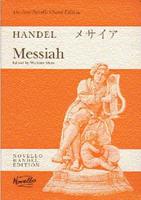Publisher's Synopsis
Excerpt from The Book of Hours: In Which Are Contained Offices for the Seven Canonical Hours, Litanies, and Other Devotions
The Seven Times of Prayer, according to immemorial tradition, are as follows. The 1st is that portion of the twenty-four hours when, midnight being past, it is still dark, but drawing towards the day. The Offices used at that time were known as N octurns and Matins; the Nocturns being divided into three parts, known respec tively as the lst, 2d, and 3d Nocturn, and the Matins, which followed immediately upon the Nocturns, being prolonged and terminated in' an Office called Lauds, which was said at daybreak. The 2d time is that of the sunrising, at which the Office known as Prime, and corre sponding to Early Mornlng prayer was used. The 3d time is nine o'clock A M., the third hour of the day in a double sense; it was then that our Blessed Lord was devoted to Crucifixion by His fees, and at that hour the Holy Ghost descended on the Day of Pentecost. The 4th time is twelve o'clock meridian, at which period the Lord was hanging on the cross, _and the darkness was gathering upon the land. At three P. M. Is said the 5th Office, in commemoration Of ourredeemer's death, and with special remembrance of those in the agony of their own dissolution, or approaching it. The hour of Vespers comes with the fall of the evening; and 7 thly and lastly, is said the Compline Office, when it is dark Once more, and when the night-watches are again begun.
About the Publisher
Forgotten Books publishes hundreds of thousands of rare and classic books. Find more at www.forgottenbooks.com
This book is a reproduction of an important historical work. Forgotten Books uses state-of-the-art technology to digitally reconstruct the work, preserving the original format whilst repairing imperfections present in the aged copy. In rare cases, an imperfection in the original, such as a blemish or missing page, may be replicated in our edition. We do, however, repair the vast majority of imperfections successfully; any imperfections that remain are intentionally left to preserve the state of such historical works.








